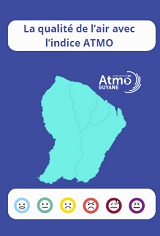Blada.com
mardi 03 février
Boîtes aux lettres
Courrier des lecteurs
Petites annonces
Emploi / Formation
Covoiturage
Infos citoyennes
Infos citoyennes
03/02/21
Face aux variants, respectons la septaine à l’arrivée en Guyane !
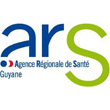 Face au risque de propagation des différents variants du Covid-19, une septaine est imposée aux voyageurs arrivant en Guyane ou se rendant dans l’Hexagone. Cet isolement ouvre le droit à des indemnités journalières, sans délai de carence, pour les personnes ne pouvant télétravailler.
Face au risque de propagation des différents variants du Covid-19, une septaine est imposée aux voyageurs arrivant en Guyane ou se rendant dans l’Hexagone. Cet isolement ouvre le droit à des indemnités journalières, sans délai de carence, pour les personnes ne pouvant télétravailler.
Avec l’apparition de nouveaux variants du Covid-19, les mesures barrières ont été renforcées :
- En l’absence de port du masque, la distance entre deux personnes doit être portée à deux mètres ;
- Seuls les masques grand public de type 1 sont autorisés désormais;
- En cas de découverte chez un professionnel asymptomatique d’un prélèvement nasopharyngé positif (RT-PCR), la mesure d’éviction de sept jours ne peut souffrir aucune dérogation, estime le Haut Conseil de la santé publique ;
- Une septaine doit être respectée à l’arrivée par les personnes circulant entre l’Hexagone et les territoires d’Outre-mer, dans les deux sens.
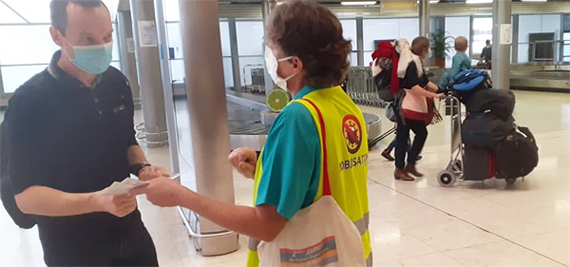 Cette septaine est encadrée par un décret du 8 janvier. Il prévoit notamment des indemnités journalières pour les salariés ne pouvant télétravailler (lire ci-dessous).
Cette septaine est encadrée par un décret du 8 janvier. Il prévoit notamment des indemnités journalières pour les salariés ne pouvant télétravailler (lire ci-dessous).
Un motif impérieux est obligatoire pour voyager entre les Outre-mer et Paris. Depuis le 18 janvier, il revient aux compagnies aériennes d’expliquer aux passagers les engagements qu’ils doivent prendre sur l’honneur avant de voyager. Ainsi, tout passager présente à l'entreprise de transport aérien, avant son embarquement, une déclaration sur l'honneur attestant :
- Qu'il ne présente pas de symptôme d'infection au covid-19 ;
- Qu'il n'a pas connaissance d'avoir été en contact avec un cas confirmé de covid-19 dans les quatorze jours précédant le vol ; 7
- S'il est âgé de onze ans ou plus, qu'il accepte qu'un test ou un examen biologique de dépistage virologique de détection du SARS-CoV-2 puisse être réalisé à son arrivée sur le territoire national.
- Qu'il s'engage à respecter un isolement prophylactique de sept jours après son arrivée dans l’Hexagone ou dans l’un des territoires d’Outre-mer et, s'il est âgé de onze ans ou plus, à réaliser, au terme de cette période, un examen biologique de dépistage virologique permettant la détection du SARS-CoV-2.
Aujourd’hui, la septaine est le meilleur moyen de protéger la Guyane de l’arrivée des variants anglais et sud-africain, qui circulent d’ores et déjà ailleurs sur le territoire national. Elle permet aussi de limiter le risque de diffusion du variant brésilien, qui n’a pas encore été détecté sur le territoire national. Compte tenu des incertitudes liées à sa présence en Guyane, la septaine des personnes voyageant depuis la Guyane vers l’Hexagone ne peut souffrir aucune exception, y compris pour motif professionnel (lire ci-dessous).
- Des indemnités journalières versées aux personnes qui s’isolent sans pouvoir télétravailler
A son arrivée en Guyane, chaque passager est tenu de respecter une septaine, c’est-à-dire qu’il doit s’isoler pendant sept jours. L’assuré qui se trouve dans l’impossibilité de télétravailler bénéficie d’indemnités journalières versées par l’Assurance maladie, selon un décret du 8 janvier.
Ces indemnités journalières sont versées :
- Pour toute la durée de l’isolement ;
- Sans condition d’ouverture des droits ;
- Sans délai de carence avec versement d’un complément de salaire par l’employeur le cas échéant ;
- Sans être prises en compte dans le calcul du nombre maximal d’indemnités journalières qu’un assuré peut percevoir.
En pratique, une attestation d’isolement précisant les dates de début et de fin d’isolement doit être remise aux passagers à leur arrivée en Guyane. Cette attestation doit être adressée à la caisse primaire d'assurance maladie (CPAM) de l’assuré, pour une prise en charge de la période.
Pour les salariés du secteur public, si le fonctionnaire ou le militaire ne peut pas exercer ses fonctions en télétravail, son employeur peut placer en autorisation spéciale d’absence afin qu’il soit en mesure de respecter son isolement.
Le salarié reçoit également son complément de salaire de son employeur
- sans avoir à justifier dans les 48 heures de l’incapacité résultant de la maladie ;
- sans avoir à être soigné sur le territoire français ou dans l’un des autres Etats membres de la Communauté européenne ou dans l’un des autres Etats partie à l’accord sur l’Espace économique européen ;
- sans délai de carence de 7 jours ;
- sans prendre en compte les durées d’indemnisation au cours des douze mois antérieurs à la date de début de l’arrêt de travail concerné et les durées d’indemnisation au titre de cet arrêt pour le calcul de la durée totale d’indemnisation au cours de la période de douze mois ;
- sans condition d’ancienneté.
- Les salariés travaillant à domicile, les salariés saisonniers, temporaires et les intermittents bénéficient également de l’indemnisation complémentaire de l’employeur.
Dans ces conditions, un employeur ne peut demander à son salarié qui ne peut télétravailler de poser des jours de congé pour couvrir la période d’isolement à laquelle il doit se soumettre.
Les travailleurs non salariés (gérants salariés, stagiaires de la formation professionnelle, contractuels de droit public de l’administration et fonctionnaires à temps non complet travaillant moins de 28 heures par semaine, artiste-auteurs, artisans/commerçants et micro-entrepreneurs, professionnels de santé (PAMC ou professions libérales), professions libérales, assistantes maternelles qui ne sont pas en activité partielle) peuvent également bénéficier de cet arrêt de travail.
- Une exception envisagée pour les soignants venant en Guyane
Une dérogation à la septaine est à l’étude pour l’exercice d’une activité professionnelle essentielle. Ce serait alors le cas, par exemple, pour les soignants. Cet isolement ne pourrait toutefois être assoupli que dans le seul cadre de l’exercice de cette activité, tout en veillant à limiter les déplacements et les contacts au strict minimum, et à respecter scrupuleusement les gestes barrières. Attention, cet assouplissement ne sera en aucun cas admis pour les personnes se rendant de Guyane dans l’Hexagone, en raison des incertitudes liées à la présence du variant brésilien en Guyane et au fait que ce nouveau variant n’a pas été détecté sur le territoire français à ce jour.
Par ailleurs, le test à J+7 est demandé quel que soit le motif du déplacement, y compris lorsque la durée de séjour est inférieure à 7 jours.
- Un protocole pour les personnes effectuant des rotations plusieurs fois par semaine
Pour les personnes effectuant plusieurs rotations par semaine entre la Guyane et d’autres territoires, le protocole est le suivant :
- Surveillance médicale de ces personnes mise en œuvres par les médecines du travail reposant sur la réalisation d’une RT-PCR à minima à fréquence hebdomadaire et dont le résultat devra être rendu dans les vingt-quatre heures au plus ;
- Auto-surveillance quotidienne accrue : surveillance de l’apparition de tout symptôme évocateur et prise de température deux fois par jour ;
- Respect scrupuleux des mesures barrières et du port du masque, et limitation des contacts.
Faced with the risk of the spread of the various variants of Covid-19, a septaine is imposed on travelers arriving in French Guiana or going to France. This isolation gives rise to the right to daily allowances, without waiting period, for people who cannot telework.
With the appearance of new variants of Covid-19, barrier measures have been strengthened:
- f the mask is not worn, the distance between two people should be increased to two meters;
- Only type 1 general public masks are now authorized;
- In the event of discovery in an asymptomatic professional of a positive nasopharyngeal swab (RT-PCR), the seven-day eviction measure cannot be waived, believes the High Council of Public Health;
- A septaine must be respected on arrival by people traveling between France and the overseas territories, in both directions.
This septain is framed by a decree of January 8. In particular, it provides for daily allowances for employees who cannot telework (see below).
A compelling reason is mandatory for traveling between the overseas territories and Paris. As of January 18, it has been the responsibility of airlines to explain to passengers the commitments they must make on honor before traveling. Thus, any passenger presents to the air transport company, before boarding, a sworn statement attesting:
- That he does not have symptoms of covid-19 infection;
- That he is not aware of having been in contact with a confirmed case of covid-19 in the fourteen days preceding the flight;
- If he is eleven years of age or over, he accepts that a test or a virological screening test for the detection of SARS-CoV-2 can be carried out on his arrival on the national territory.
- That he undertakes to respect a prophylactic isolation of seven days after his arrival in France or in one of the Overseas Territories and, if he is eleven years old or more, to achieve, at At the end of this period, a biological virological screening examination allowing the detection of SARS-CoV-2.
Today, the septaine is the best way to protect French Guiana from the arrival of the English and South African variants, which are already circulating elsewhere in the country. It also helps limit the risk of dissemination of the Brazilian variant, which has not yet been detected in the national territory. Given the uncertainties associated with its presence in French Guiana, the seven-odd number of people traveling from French Guiana to France cannot suffer any exceptions, including for professional reasons (see below).
- Daily allowances paid to people who isolate themselves without being able to telework
On arrival in French Guiana, each passenger is required to adhere to a septaine, that is to say, they must isolate themselves for seven days. The insured who is unable to telework benefits from daily allowances paid by Health Insurance, according to a decree of January 8.
These daily allowances are paid:
- For the entire duration of isolation;
- Without condition of entitlement;
- Without waiting period with payment of a salary supplement by the employer if necessary;
- Without being taken into account in the calculation of the maximum number of daily allowances that an insured can receive.
In practice, an isolation certificate specifying the start and end dates of isolation must be given to passengers upon their arrival in French Guiana. This certificate must be sent to the insured's primary health insurance fund (CPAM), for coverage of the period.
For public sector employees, if the civil servant or the military cannot carry out their duties by teleworking, their employer can place special leave of absence so that they are able to respect their isolation.
The employee also receives his additional salary from his employer
- without having to justify the incapacity resulting from the illness within 48 hours;
- without having to be treated on French territory or in one of the other member states of the European Community or in one of the other states party to the agreement on the European Economic Area;
- without a 7-day waiting period;
- without taking into account the durations of compensation during the twelve months prior to the start date of the work stoppage concerned and the duration of compensation under this stoppage for the calculation of the total duration of compensation during the period of twelve months;
- without condition of seniority.
- Employees working at home, seasonal, temporary and intermittent employees also benefit from additional compensation from the employer.
Under these conditions, an employer cannot ask his employee who cannot telework to take days off to cover the period of isolation to which he must submit.
Self-employed workers (salaried managers, vocational training trainees, public administration contract workers and non-full-time civil servants working less than 28 hours per week, artist-authors, artisans / traders and micro-entrepreneurs, health (PAMC or liberal professions), liberal professions, childminders who are not in partial activity) can also benefit from this work stoppage.
- An exception envisaged for caregivers coming to French Guiana
An exemption from the septaine is being studied for the exercise of an essential professional activity. This would then be the case, for example, for caregivers. However, this isolation could only be relaxed within the framework of the exercise of this activity, while ensuring to limit movement and contact to the strict minimum, and to scrupulously respect barrier gestures. Please note, this relaxation will in no case be accepted for people traveling from French Guiana to France, due to the uncertainties linked to the presence of the Brazilian variant in French Guiana and to the fact that this new variant has not been detected. on French territory to date.
In addition, the test on D + 7 is requested regardless of the reason for the trip, including when the length of stay is less than 7 days.
- A protocol for people performing rotations several times a week
For people making several rotations per week between French Guiana and other territories, the protocol is as follows:
- Medical surveillance of these people implemented by occupational medicine based on the performance of an RT-PCR at least every week and the result of which must be returned within twenty-four hours at most;
- Increased daily self-monitoring: monitoring the appearance of any suggestive symptoms and taking temperature twice a day;
- Scrupulous respect for barrier measures and the wearing of a mask, and limitation of contact.
Raccourcis

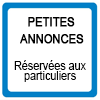
passer une petite annonce

passer une annonce de covoiturage

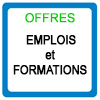
passer une annonce d’emploi
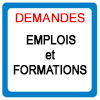
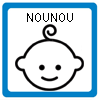
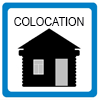
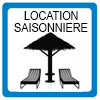

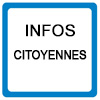
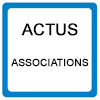
associations, postez vos actualités

participez au courrier des lecteurs
La Guyane c’est ici
La qualité de l’Air avec
ATMO
Photothèque

Lancements 2022
Vol 259 Ariane 5



